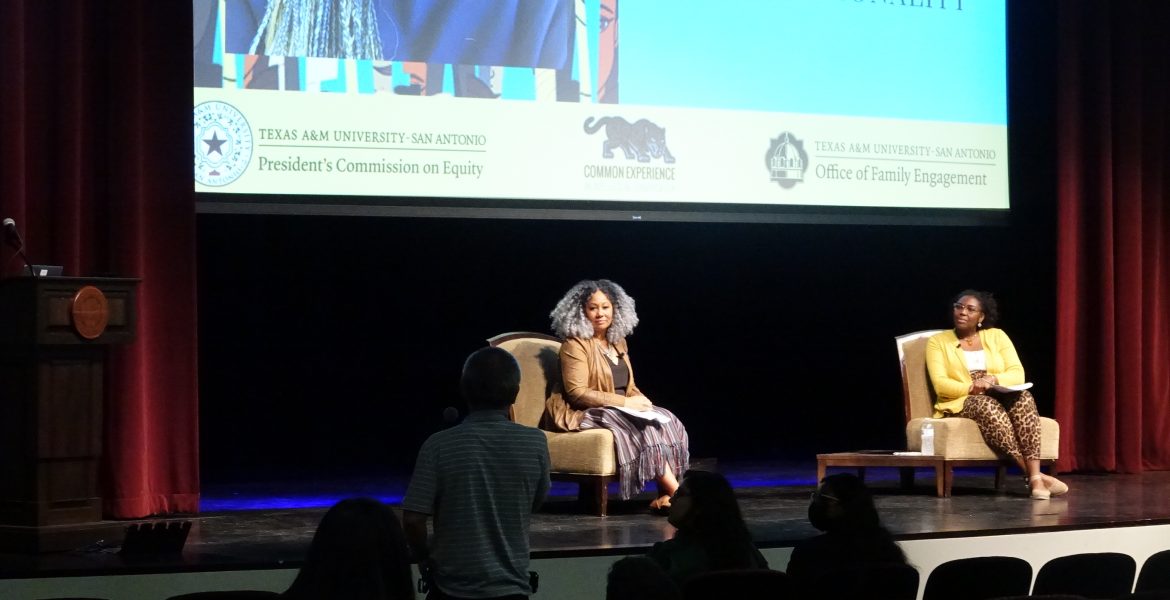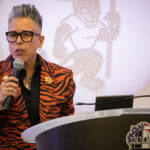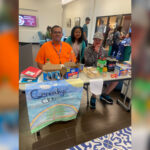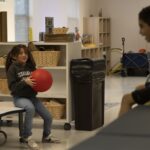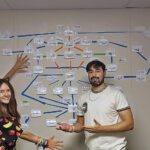People should be proud of the many identities that make up who they are, an author and researcher said Nov. 1 at Texas A&M University-San Antonio.
November is Native American Heritage Month. To begin the celebration, First-Year Experience invited Dr. Lorri Santamaría to lecture.
Santamaría, director of Faculty Development and Inclusive Excellence at California Lutheran University, spoke to about 40 students and faculty members in the auditorium.
She identifies as an African American, Native American, Latin American woman. She was born in Spain with deep ties to Louisiana and New Zealand.
“Intersectionality is where all of the parts that identify who we are, intersect. Every place where there’s a disadvantage, that’s where intersectionality lies,” Santamaría said.
Myrna A. Garza, coordinator of First-Year Experience said the event shares the experience of an indigenous woman. People’s struggles are the same regardless of how their identities intersect.
“It’s very easy to put ourselves in a box,” Garza said. “We have many identities. This is a great way to share common experiences.”
She added, “We’re hoping to help students self-reflect.”
Students and faculty members sat attentively to listen to Santamaría. Some students took notes; others occasionally laughed and shouted answers to questions.
With many identities wrapped up into just one person, people are forced to acknowledge all the uniqueness that make up who they are. Acceptance can bring privilege or disadvantage.
An audience member who identified as half Japanese and half Caucasian asked if they should reveal the Asian part of their identity to others because being part Japanese isn’t always flattering.
Santamaría replied, “You can’t deny your biology. Be proud of who we are.”
The audience applauded.
Santamaría said, “code-switching is the skill of flowing in and out of a language or culture. It’s part of your education.”
People code-switch for various reasons. It can be used in social settings to fit in or show solidarity. It can be used in professional settings to impress or persuade.
Biology freshman Cynthia Moncada shared after the lecture she observed members of her family code-switch. Cynthia stated her grandfather code-switches all the time. Now she has a better understanding of why it’s done.
She encourages students not to change who they are to strictly fit in a crowd.
Santamaría said, “Be around people where you can be yourself. Be around people who make you feel like sunshine. If you’re around people who want you to change, you need to change the people you’re around.”
She was a first-generation student and the first in her family to obtain a doctorate.
Stephanie Black, associate professor, College of Business wanted tips for first-generation students navigating their college experience independently.
Santamaría suggested using the resources provided by the university and allowing the university to support students through their educational journey.
Santamaría said, “Education can help you change your circumstance.”
The Office of First-Year Experience is hosting a panel discussion titled, “Native American Heritage Month: A&M-SA Land Acknowledgement,” at 12:15 p.m. Thursday, Nov. 18 in the Ceremony Room. In this panel, indigenous leaders will share information about what land acknowledgments are, why they are important and how we can take action to support Indigenous communities.
For more information or to RSVP for this event, please visit JagSync.

